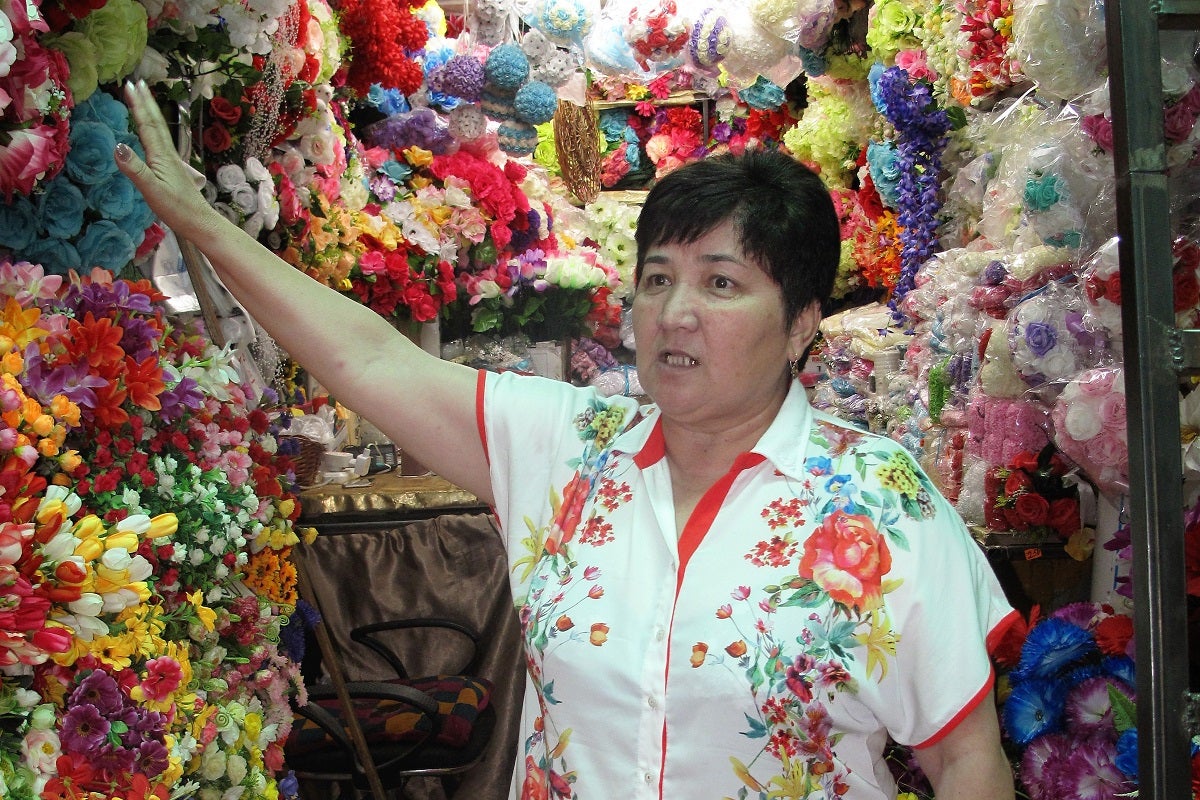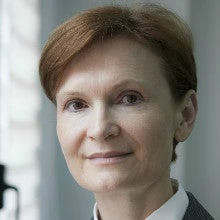
Alimakan, a middle-aged Kyrgyz, is a new generation entrepreneur in Central Asia. I met her at her shop where she sells goods ranging from socks to artificial flowers at Dordoy, the region’s biggest market.
Her business is well known among local and international clients, including from far-away Siberian cities. She has a stable income and is determined to make things easier for her family. She lives in a beautiful house; her children are studying at the country’s top universities and she provides financial support to the rest of her family.
Twenty years ago, however, her future looked bleak. Her husband had left her with two small children. Job prospects in the Kyrgyz Republic were scarce in the early 1990s. With no financial support and limited employment possibilities, she was desperate.
Her only hope, she decided, was to rent a small corner in a shop at Dordoy. It was hard at first. She had no knowledge of business, faced many bureaucratic bottlenecks, and was a woman at a time when business was considered a man’s realm.
A lot of hard work transformed a struggling business into a thriving one.
“I spent a lot of time self-educating myself about business. I read every handout I could find, participated in every training program out there,” she said. “It helped me to improve the way I run my business.”
Today she is using that knowledge to provide guidance and coaching to young entrepreneurs around her. Another thing that helped was programs supporting entrepreneurship, one of which lead to her obtaining a loan.
Alimakan’s story inspires me because it shows that the right environment and opportunity can help a person lift their own generation - and the next one - out of poverty.
Hundreds of thousands of men and women like her have helped improve lifestyles in Central Asia over the past 20 years. Going forward, it’s important that Alimakan and people like her elevate economic growth in Central Asia to the next level. For that, Alimakan’s energy and persistence alone is not enough – there is also a need for bold policies and reforms from the governments in Central Asia, aimed at creating more jobs with higher incomes.
Jobs and wage growth have been the most important driver of poverty reduction globally, and Central Asia. In Tajikistan, for example, it has cut poverty by about two-thirds since 2003. In Kazakhstan, it accounted for more than three-quarters of income growth over the past decade — even among the poorest 20 percent. The other Central Asian nations have also achieved significant economic growth and poverty reduction in the past two decades due to income growth.
But poverty-reduction rates have slowed. In Kyrgyzstan, they began slowing during the global recession of 2008, as income growth faltered. Poverty reduction in Tajikistan leveled off in 2015, when wage growth slackened and remittances from Tajiks working overseas fell.
In Uzbekistan, more than 90 percent of the poorest households have identified lack of jobs as their most urgent priority. For these families, the prospect of increasing their income is slim, while the likelihood of transmitting poverty to their children is high.
Human Capital
Better jobs and the higher wages they generate will come from greater productivity, which, in turn, will come from improved human capital, economists say. The World Bank’s recently released Human Capital Index (HCI) reveals that Central Asia has room to improve.
It is critical to ensure that all Central Asians have the opportunity to improve their knowledge, skills, health and resilience - collectively, their human capital - so they can be more productive and thrive. Building human capital is particularly important for young children: missing a short window of opportunity in the first years of a child’s life can lead to costly and irreversible consequences later in life.
Improving the Business Climate
Business flourishes when regulations promote their activities rather than constrain them. A key to enhancing the business climate is making sure bureaucratic procedures are simple and transparent, including the process of starting a business and obtaining licenses.
An encouraging sign is that some countries in the region have significantly improved their business climates. Uzbekistan, in particular, has been making important strides.
Empowering Women
Global experience has shown that when women work, they help provide for themselves and their families. Closing the global gender gap in economic participation by 25 percent would increase global GDP by about $5.3 trillion by 2025. In Central Asia, the low level of women participating in the labor force remains an important impediment to economic development.
Central Asian women face many barriers in the workplace, both formal and informal, such as no way to protect themselves from gender discrimination and harassment. Recent data from Tajikistan, Uzbekistan, and Kyrgyzstan suggests that women in the poorest localities are the least likely to find a job.
There is no doubt that governments will face challenges in implementing these policies to boost growth. The World Bank stands ready to support them, so that the future generation of Central Asians will enjoy the fruits of this hard work.


Join the Conversation